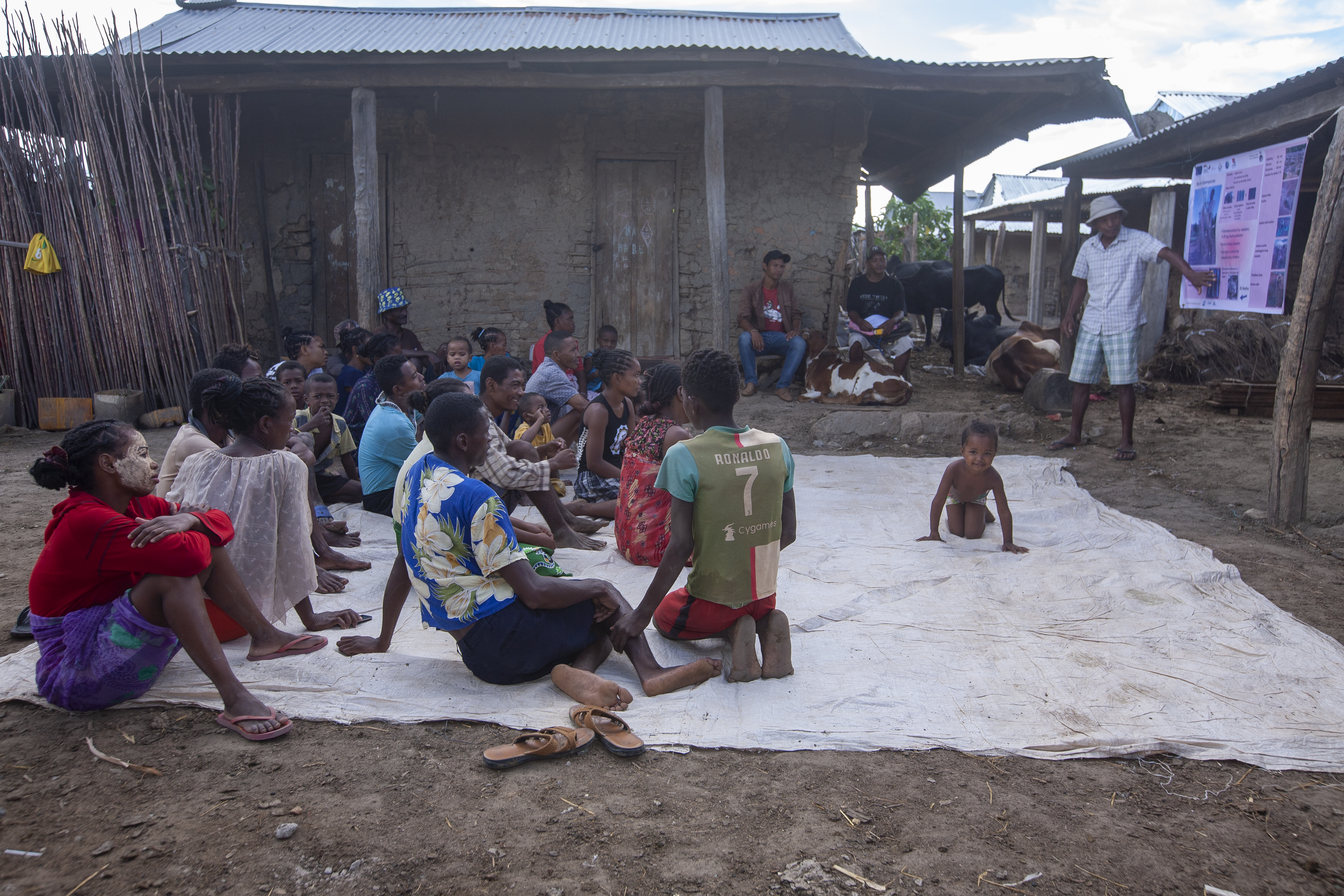

Para garantizar el futuro a largo plazo del sistema de RP, es esencial asegurar su reconocimiento institucional y su integración en las políticas agrícolas nacionales. Para ello es necesario introducir un marco de referencia nacional de formación y un sistema de certificación de los RP. Estas normas definen las competencias y los módulos de aprendizaje necesarios para formar a los RP, abarcando tanto los aspectos técnicos (agroecología, conservación del suelo) como las competencias pedagógicas (liderazgo, transmisión de conocimientos). La certificación, que se está desarrollando actualmente, permitirá a los RP acceder a la financiación y reforzará su credibilidad ante las instituciones y los socios agrícolas. Al mismo tiempo, se han puesto en marcha mecanismos de financiación para apoyar a los RP y garantizar su capacitación. Estos mecanismos incluyen
- El Fondo de Desarrollo Agrícola Regional, que subvenciona los servicios prestados por los RP certificados.
- Actividades generadoras de ingresos (AGI), que permiten a los RP desarrollar servicios agrícolas (venta de semillas, producción de compost) para garantizar su viabilidad económica.
- Asociaciones con organizaciones de agricultores, para integrar a los RP en las estructuras locales de apoyo a la agricultura.
- La introducción de un proceso de certificación, probado en dos zonas piloto, garantiza el reconocimiento oficial de los RP y su integración en los sistemas agrícolas.
- El desarrollo de actividades generadoras de ingresos (AGI) permite a los RP ofrecer servicios vinculados a los insumos locales, reforzando así su autonomía financiera.
- El acceso a mecanismos de financiación, especialmente a través del fondo regional de desarrollo agrícola, apoya a los RP certificados subvencionando sus servicios e iniciativas.
- Un marco de referencia nacional y un proceso de certificación refuerzan la legitimidad y eficacia de los PR. Estas herramientas proporcionan reconocimiento oficial y facilitan su inclusión en planes de financiación y asociaciones locales.
- El apoyo a la creación de actividades generadoras de ingresos es crucial para garantizar el compromiso a largo plazo de los RP. Oportunidades como el suministro de insumos permiten a los RP conciliar sus responsabilidades con beneficios económicos directos.
- La colaboración con las partes interesadas locales es esencial para mantener la sostenibilidad del modelo una vez finalizados los programas. Estas asociaciones garantizan una transición fluida y la continuidad de los servicios.